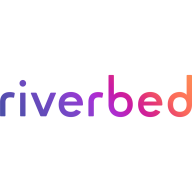

Alluvio Aternity and Grafana are prominent tools in the fields of monitoring, performance analytics, and data visualization. While Grafana stands out with its extensive features and data integration options, Alluvio Aternity has the upper hand in support and pricing.
Features: Alluvio Aternity offers comprehensive monitoring, performance capabilities, and real-time insights with detailed analytics. Grafana provides powerful visualization capabilities, broad compatibility with multiple data sources, and customizable dashboards.
Room for Improvement: Alluvio Aternity needs to enhance reporting functionalities, simplify the complex setup process, and streamline user navigation. Grafana could improve its alerting features, offer better support documentation, and expand user guidance for advanced features.
Ease of Deployment and Customer Service: Alluvio Aternity has a complex deployment process but benefits from highly responsive and helpful customer service. Grafana has a smoother deployment process, extensive community and documentation support, but lacks in direct customer service.
Pricing and ROI: Alluvio Aternity generally provides better pricing options and a higher return on investment due to robust support and detailed performance analytics. Grafana, despite being more expensive upfront, offers significant value through powerful features and extensive integration capabilities, making it a worthwhile investment.
| Product | Market Share (%) |
|---|---|
| Grafana | 5.2% |
| Alluvio Aternity | 0.5% |
| Other | 94.3% |


| Company Size | Count |
|---|---|
| Small Business | 1 |
| Midsize Enterprise | 4 |
| Large Enterprise | 32 |
| Company Size | Count |
|---|---|
| Small Business | 13 |
| Midsize Enterprise | 8 |
| Large Enterprise | 24 |
Alluvio Aternity full-spectrum Digital Experience Management provides insight into the business impact of customer and employee digital experience by capturing and storing technical telemetry at scale from employee devices, every type of business application, and your cloud-native application service.
It also helps you resolve issues quickly by showing you response time breakdown between client device, network, and application back ends. Aternity provides AI-powered visibility into the end user experience of every cloud, SaaS, thick client, or enterprise mobile app, whether it runs on a virtual, physical, or mobile device.
Aternity Features
Aternity has many valuable features, including:
Aternity Benefits
Some of the biggest advantages the Aternity offers include:
Reviews from Real Users
Below are some reviews and helpful feedback written by Aternity users.
PeerSpot user Ryan P., Head of Cyber Security Engineering & Oversight at a media company, says, "The most valuable thing that you get from Aternity is very broad visibility. You get visibility of your network, of your endpoints, of your software usage, your application performance, capacity, in one pane of glass. We had 20 to 30 IT tools, including application performance monitoring, network monitoring, security, endpoint detection, network protection, capacity management, service management — every kind of monitoring you can imagine. But Aternity was always the first place that I turned for anything, because you can see everything in it."
An Endpoint Administration Manager at a financial services firm mentions, “It gives you the ability to filter the comparison by geography, industry, or company size.” He also adds, “We have absolutely seen ROI. It's really given us a very high level of visibility that we've just not ever had.”
A Regional Network Manager at a recruiting/HR firm comments, "Aternity provides metrics about actual employee experience of all business-critical apps, rather than just a few. It does some out-of-the-box monitoring for the Office suite, but you can create custom monitoring for any of your applications, whether a web client or a desktop application."
A Sr. IT Manager at a manufacturing company states, "The most valuable feature is the application performance troubleshooting because Aternity is able to provide the performance from the end-user perspective. It doesn't just give the standard application logon time, etc., rather it's also able to measure the performance inside the application, the performance of specific transactions in the application, and break it down into three elements: the client time, the network time, and the server time. This gives us a lot of insights into what we need to focus on to improve the performance of an application."
Grafana is an open-source visualization and analytics platform that stands out in the field of monitoring solutions. Grafana is widely recognized for its powerful, easy-to-set-up dashboards and visualizations. Grafana supports integration with a wide array of data sources and tools, including Prometheus, InfluxDB, MySQL, Splunk, and Elasticsearch, enhancing its versatility. Grafana has open-source and cloud options; the open-source version is a good choice for organizations with the resources to manage their infrastructure and want more control over their deployment. The cloud service is a good choice if you want a fully managed solution that is easy to start with and scale.
A key strength of Grafana lies in its ability to explore, visualize, query, and alert on the collected data through operational dashboards. These dashboards are highly customizable and visually appealing, making them a valuable asset for data analysis, performance tracking, trend spotting, and detecting irregularities.
Grafana provides both an open-source solution with an active community and Grafana Cloud, a fully managed and composable observability offering that packages together metrics, logs, and traces with Grafana. The open-source version is licensed under the Affero General Public License version 3.0 (AGPLv3), being free and unlimited. Grafana Cloud and Grafana Enterprise are available for more advanced needs, catering to a wider range of organizational requirements. Grafana offers options for self-managed backend systems or fully managed services via Grafana Cloud. Grafana Cloud extends observability with a wide range of solutions for infrastructure monitoring, IRM, load testing, Kubernetes monitoring, continuous profiling, frontend observability, and more.
The Grafana users we interviewed generally appreciate Grafana's ability to connect with various data sources, its straightforward usability, and its integration capabilities, especially in developer-oriented environments. The platform is noted for its practical alert configurations, ticketing backend integration, and as a powerful tool for developing dashboards. However, some users find a learning curve in the initial setup and mention the need for time investment to customize and leverage Grafana effectively. There are also calls for clearer documentation and simplification of notification alert templates.
In summary, Grafana is a comprehensive solution for data visualization and monitoring, widely used across industries for its versatility, ease of use, and extensive integration options. It suits organizations seeking a customizable and scalable platform for visualizing time-series data from diverse sources. However, users should be prepared for some complexity in setup and customization and may need to invest time in learning and tailoring the system to their specific needs.
We monitor all Application Performance Monitoring (APM) and Observability reviews to prevent fraudulent reviews and keep review quality high. We do not post reviews by company employees or direct competitors. We validate each review for authenticity via cross-reference with LinkedIn, and personal follow-up with the reviewer when necessary.